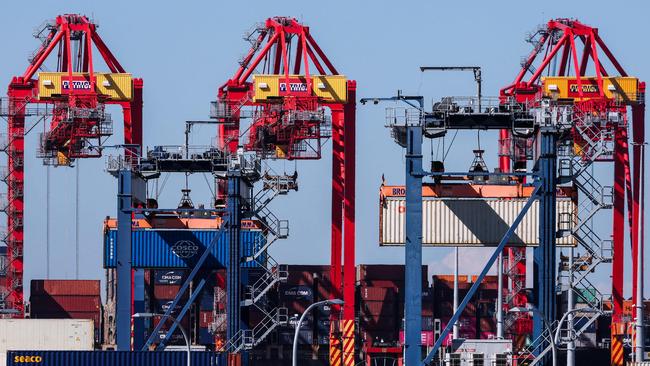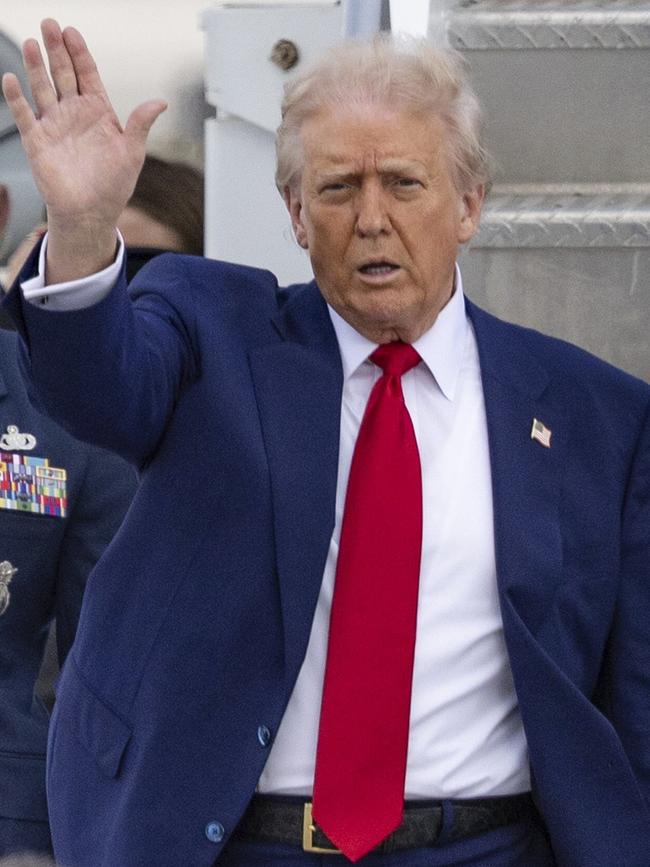Tackle a global tariff war with these Exchange Traded Funds
The gateway to global markets for many Australian investors has been ETFs – it’s time to review what you’ve got.

Most Australian investors use exchange traded funds to access global markets.
But the world’s largest consumer market announced sweeping trade tariffs this week. As a result it will become a lot more expensive to import into the US.
President Donald Trump labelled it “Liberation Day” for the American economy, however, the 10 to 49 per cent tariffs have sent global trade into a spin.
Cambodian imports to the US will attract the maximum 49 per cent tariff while Vietnamese imports will be hit with a 46 per cent tariff.
As a result, talk has already started on rerouting supply chains and trade flows to other countries less affected by the US tariffs such as Indonesia, which was given a 32 per cent import tariff.
Will it make a difference? Here’s a standout example: Fiji, whose largest trading partner is the US, was hit with a 32 per cent tariff. Two-thirds of its exports to the US is water, meaning the price of Fiji water in the US is likely to increase and demand decrease.
Australia of course is hit with the standard 10 per cent tariff – with no exception.
Australian investors must now ask themselves what ETFs should they be buying and selling to both protect their portfolio from the trade tariff losers and take advantage of the trade tariff winners.
Cameron Gleeson, senior investment strategist at Betashares says: “The reality is that tariffs offer little comfort for investors given the uncertainty they create for markets. While expected to be more of an impost on growth rather than an inflationary pulse, if tariffs create a global growth scare, central banks including the Federal Reserve may well be forced into a rate cutting cycle. High-quality, fixed-rate government bonds should not only perform well but also provide the opportunity for capital gains if there are in fact rate cuts.”
Futures markets are factoring in three RBA rate cuts in Australia and three Federal Reserve rate cuts in America by the end of 2025.

Longer-dated bond portfolios such as Betashares Australian Government Bond ETF and Vanguard Australian Government Bond Index may become beneficiaries of faster-than-expected rate cuts, given the interest income on their bond portfolios are locked in for between five to nine years, making them even more attractive if rates start to fall and new bonds offer lower returns.
Although hitting eye-watering levels, gold is another trade tariff beneficiary as investors scrabble for protection in a safe-haven asset as well as an inflation hedge. There are several gold ETFs on the ASX – the best known is Global X Gold ETF.
Betashares also sees opportunities in several other areas and Gleeson says: “Investors should look to parts of the market where there are structural tailwinds. Defence companies should continue to benefit from Trump’s isolationist policies, as European countries look to rebuild their defence capabilities.
“Cyber security companies also stand to benefit given the structural tailwind of increased spending on IT security.
“Last, but not least, are Chinese tech stocks, who are now back in favour with the Chinese government and have a massive addressable domestic market of customers and are developing local AI chip supply chains to reduce dependence on the US.”
To access the defence thematic, VanEck Global Defence ETF is in the sweet spot and for the cyber security thematic, Betashares have a Global Cybersecurity ETF.
One potential outcome from the tariff situation is that the US will focus more on internal growth to fuel the economy and get ahead of other nations implementing trade tariffs back upon the US. This could mean significantly more government infrastructure spending on roads, bridges, gas pipelines and power grids. To gain an exposure to this potential scenario, Global X US Infrastructure Development ETF is a candidate.
US small cap stocks may also be a potential beneficiary of the US trade tariffs. Compared to large cap US stocks, smaller companies are less reliant on export revenue, they have more domestic supply chains and can source alternatives in a more nimble way. And if the US economy starts to move towards recession, government stimulus is likely to target both households and smaller companies. The iShares S&P Small Cap ETF is an Australian-listed ETF that covers the smaller end of the US share market.
In terms of losers, large US companies particularly in the technology and multinational sector are exposed to higher production costs as a result of the tariffs.
Apple, for instance, produces the majority of its products in China and with a 34 per cent trade tariff, Apple will need to either absorb the tariff or pass it on to customers. In either case, both are not beneficial for Apple and many other large US companies are facing a similar conundrum.
The Australian resource sector, although positioned well to benefit from a recovering Chinese economy, is another casualty of the US tariffs.
Having some of the world’s largest diversified miners listed on the ASX, trade wars are typically bad for global growth, and as such, demand for commodities tends to fall.
Emerging market ETFs covering China, Taiwan, South Korea, India and Brazil are very exposed to a global trade war being very reliant on exports to fuel their growth. If global growth declines, investors also tend to sell down ‘riskier’ share markets such as emerging markets in preference for more developed markets.
While not an emerging market, Japan and European economies also have negative trade tariff exposure being export orientated. The EU and Japan export cars to the US as well as electronics from Japan and luxury goods and machinery from the EU.
While still early days, the world is waiting to see if President Trump’s bark is worse than his bite.
Investors should take stock of their current portfolios and prepare to both buy and sell affected investments as the US trade tariff and global counter tariffs situation becomes clearer.
James Gerrard is principal and director of financial planning firm www.financialadvisor.com.au





To join the conversation, please log in. Don't have an account? Register
Join the conversation, you are commenting as Logout